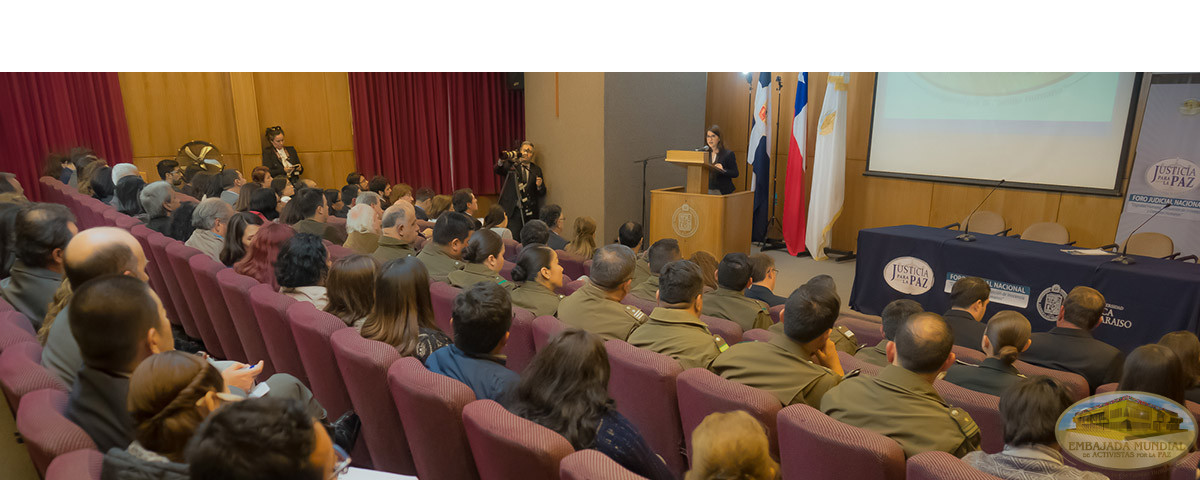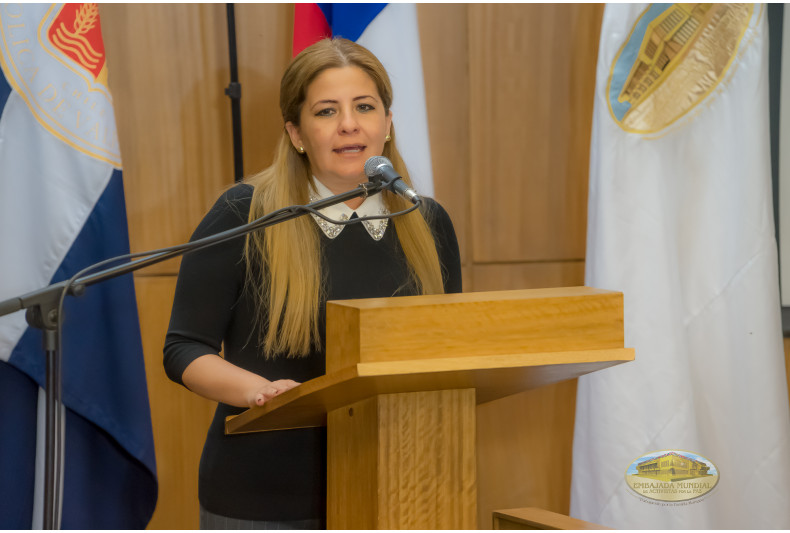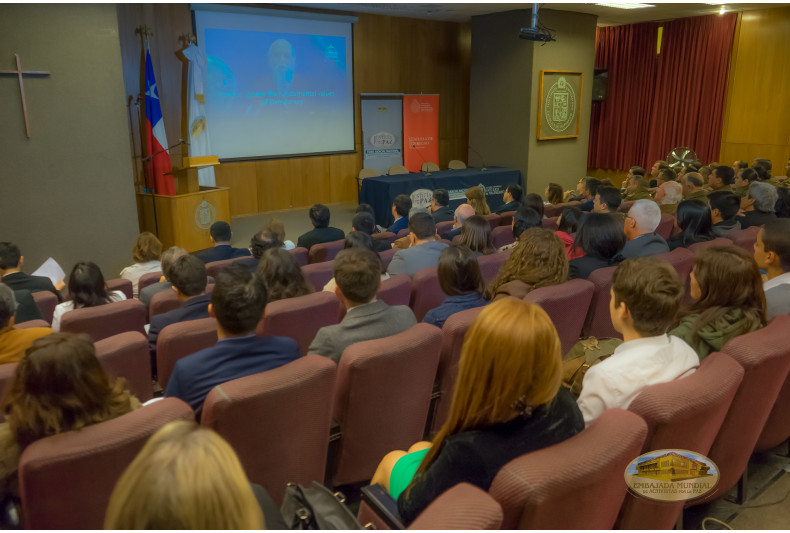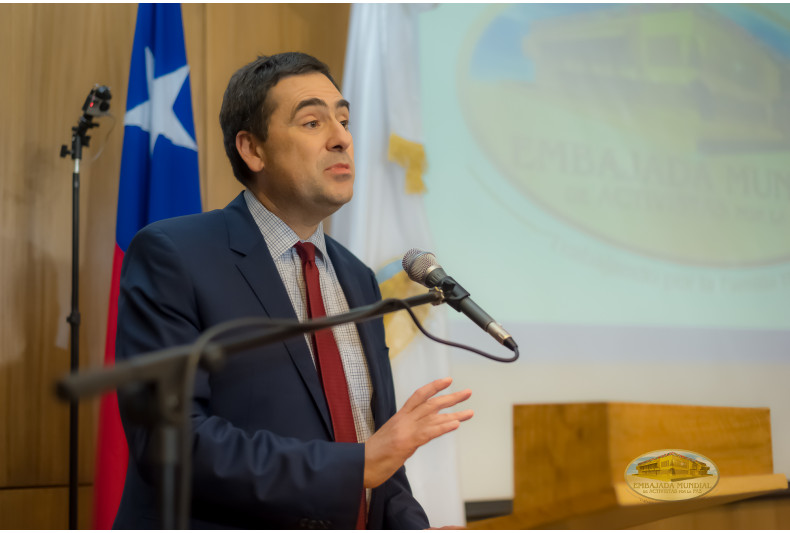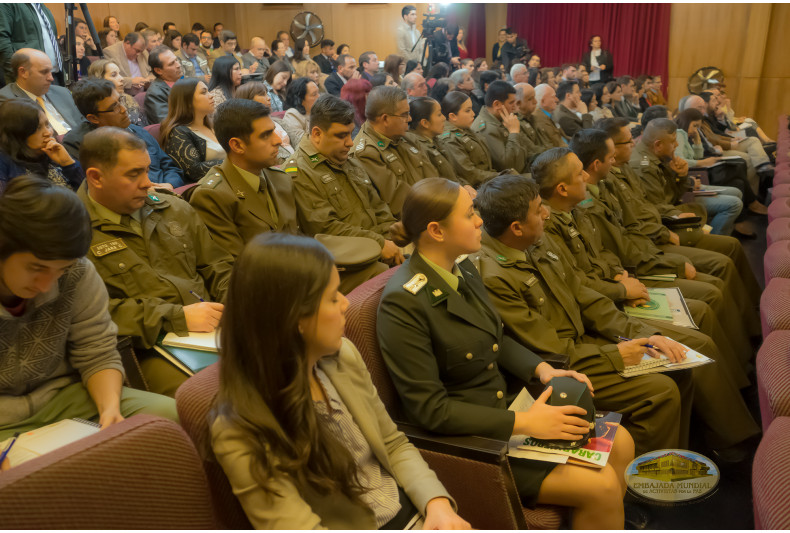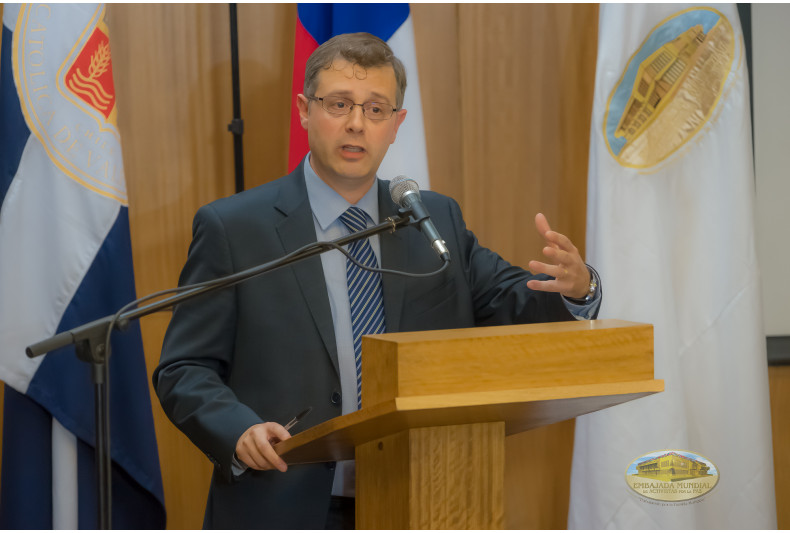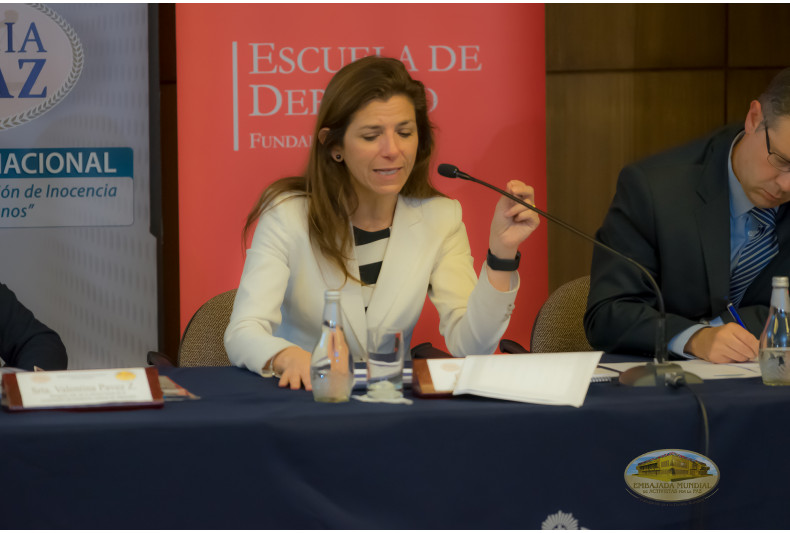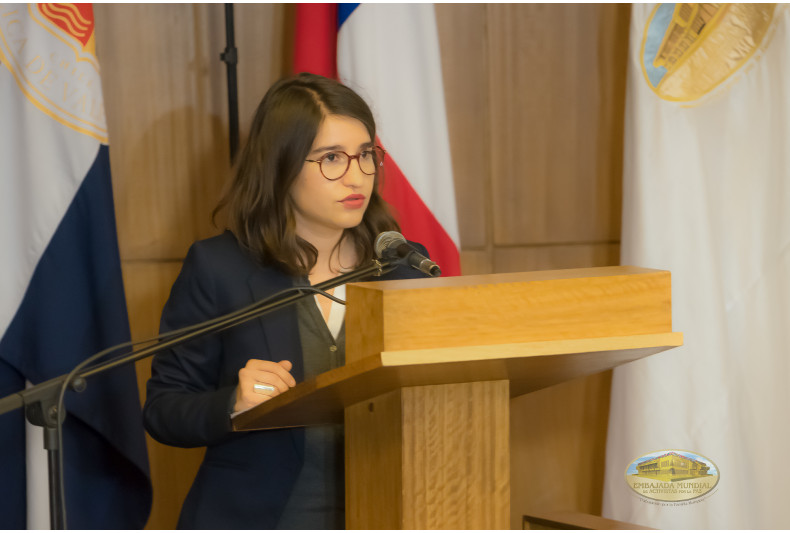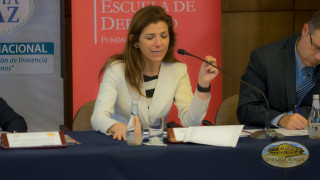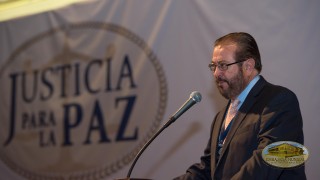Human dignity and human rights in the democratic context
See Gallery
With the special participation of the International Criminal Court, the Criminal Office of the Judicial Assistance Corporation of Valparaíso, the Office of Planning and Management of the Ministry of Justice and Human Rights, the Superior Council of Judicature, the Disciplinary Jurisdictional Chamber of Colombia and the institutional support of the Pontifical Catholic University of Valparaíso, the International Judicial Forum "Human Dignity, Presumption of Innocence and Human Rights" was held.
Professors, jurists, doctrinaires, representatives of the National Navy and of the Court of Appeals attended this space of criminal legal reflection and constitutional matter arranged by the Global Embassy of Activists for Peace within the framework of the International Justice for Peace Program.
Institutional support against violence and discrimination
"We believe and we know that peace is the presupposition of happiness and that all of us as human beings seek happiness," said Gabriela Lara, general director of the GEAP, emphasizing that happiness can only be achieved through comprehensive peace based on the practice of justice, truth, and respect for human dignity.
Conscious of this, she indicated that the GEAP has an active presence in more than 20 countries in which more than 40,000 volunteers collaborate in the development of all the programs carried out by the institution with the sole purpose of achieving the common objective, the integral peace of the human being and Mother Earth.
In this regard, the executive president of the GEAP in a pre-recorded greeting spoke of the current reality that thousands of people around the world are going through as a consequence of the hateful and discriminatory behaviors of which they are victims.
"Meanwhile, universal justice is strengthened, it is also necessary to prevent discrimination and neutralize hate speech, forming values in the human being as an effective way to prevent genocidal atrocity; it will always be better to educate for prevention, than to judge for punishment." Dr. William Soto Santiago.
In a changing society, the concepts of human rights and human dignity require constant evolution.
Dr. Alan Brofman Vargas, dean of the law faculty of this house of studies, pointed out that both dignity and human rights in the context of democracy will always be "an endless story" because with the progress of society the direct consequence will be democracy and reflection on what human dignity means, the backbone of human rights.
"Military Criminal Procedure in Chile: Principles and structure" was the topic addressed by the professor of criminal law of the PUCV, Juan Francisco Rivera who also serves as Rapporteur I. Martial Court of the Navy of Valparaíso. In his speech, he referred to military justice, its discipline and justification as a means of state control and surveillance constituted by judges or specialized institutions. This model of military justice, according to Rivera should not be a problem, the problem is the content that is given and from there, he made his contributions as an academic and professional.
In his concept, the current structure of this model of military justice in Chile is of an inquisitive order where the secret of investigations prevails, a written model in which there is no debate, and for this reason his opinion is quite critical, considering that this system is not up to date and requires updates.
On this same issue and with the critical vision of who litigates in the military justice, Dr. Valentina Pavez Zavala, Lawyer and Chief of the Criminal Office of the Judicial Assistance Corporation of Valparaiso, described as extremely critical the treatment of the presumption of innocence in the military criminal justice of Chile.
"Who is the object today of a military criminal process, is not really seen as a citizen, but is seen as an enemy of an institution, a subject that is dangerous for the proper functioning of the service and therefore must be subject to containment”, he said.
Relations of contribution between the States and the performance of the ICC in International Criminal Law
In his dissertation, Dr. Camilo Montoya, magistrate of the Superior Council of the Judiciary in Colombia, shared his knowledge of International Criminal Law, differentiating international crimes from international crimes to make way for the importance of International Judicial Cooperation.
He expressed his dissatisfaction with the criticism received by the International Criminal Court regarding some actions, clarifying that prior to the qualifications before this international tribunal it is necessary to understand that the International Criminal Court does not have investigative police, nor does it have a prison system and that is why its effectiveness depends exclusively on the obligation of cooperation on the part of States.
According to Dr. Ania Salinas, assistant magistrate of the ICC, the success and permanence of the International Justice System that presides over the International Criminal Court necessarily depends on maintaining the principles of complementarity, legitimacy, effectiveness and efficiency.
She referred to the origins of International Criminal Law and its permanent enrichment of International Humanitarian Law, the International Law of Human Rights and the National Criminal Justice Systems.
She emphasized:
"Efforts to promote the investigation and prosecution of the perpetrators of grave violations of human rights at the national level through fair and equitable processes, is a direct contribution to the Court's tasks, this contribution has been conceived, based on the principle of complementarity, since we must remember that not all human rights violations, however serious they may be, constitute international crimes under the jurisdiction of the International Criminal Court, some of them can only be judged at the national level".
According to Dr. Salinas, international and national courts face a crucial challenge, their assertion also includes the International Criminal Court, and consists of the challenge of ensuring and preserving legitimacy.
Final contributions:
In the panel designed for the themes of presumption of innocence there was talk of judicial independence, the rule of law, respect for fundamental guarantees, impartiality and even adaptation to international regulations, and for this a procedural and substantive reform in criminal material is necessary.
The national judicial forum of Valparaíso was held to generate directed opinions to correct the stated problems, to consolidate them, designing and implementing mechanisms that transcend in the interests of a more humane, prompt, and effective justice.
